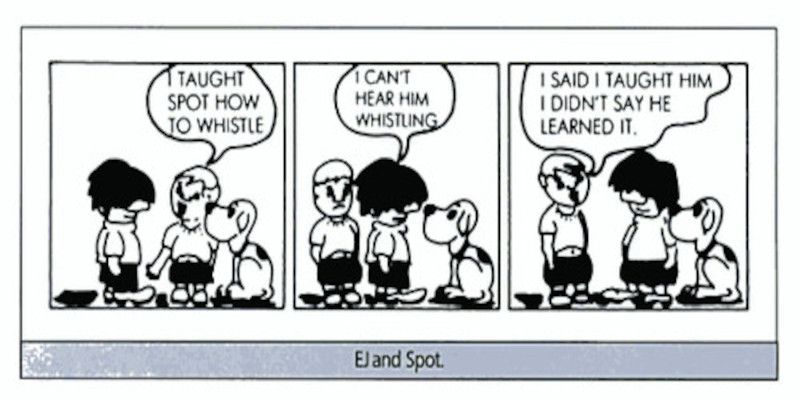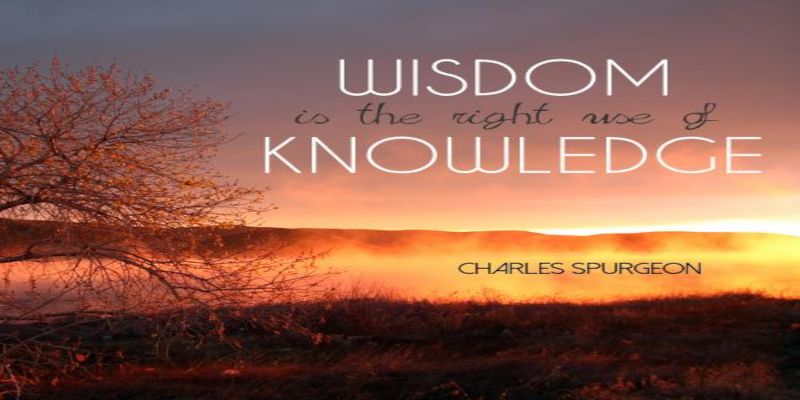Table of Contents
TogglePeople who have expertise usually enjoy sharing that information by talking a lot, rather than listening.
On the flip side, the folks who learn the most are typically those who listen attentively.
That’s why knowledge speaks, but wisdom listens. And knowing yourself is the beginning of all wisdom.
Let me explain why exactly we tend to learn more when listening, and why we share the most knowledge by speaking.
Knowledge speaks but wisdom listens explanation
People share knowledge by speaking

People who are knowledgeable about a certain topic typically like to speak to share their expertise.
Often, they also like to show off their understanding of a subject, and the easiest way to do so is by talking confidently about those matters.
At the same time, it’s good that people are willing to share their understanding about a certain issue, as this can enhance the lives of others too. Each person who becomes a better version of themselves will not only benefit that individual, but society as a whole as well.
That’s why knowledge is power. And you can’t make good choices when you have a limited understanding of something. That would make it so you’re almost guessing or simply winging it.
Listening to turn knowledge into wisdom

But if we are looking to acquire more knowledge, and to turn that new understanding into wisdom that we can share down the road, then we must listen carefully.
That’s why we should learn to practice active listening skills. Don’t be looking to take the spotlight, as this means you’re not focusing on the message that the other party’s trying to convey. The goal is to listen, not to be the center of attention.
Listening allows you to acquire new knowledge
But why do we learn more if we listen rather than talk?
It’s because humans can’t multitask all that well. Or rather, multitasking decreases our efficiency, which means we can’t absorb information as well as we would be solely concentrated on listening. Contrary to popular belief, women can’t multitask all that well either.
That means that just listening without doing anything else leads to acquiring new information much more effectively.
It’s also really hard to learn new things if we’re talking. Because when we’re speaking ourselves then that means that we’re sharing information that we already know. Because otherwise, we couldn’t share that knowledge.
Thus, speaking is mostly about sharing information we already understand rather than acquiring new info. Knowledge speaks, and wisdom listens.
Frequently Asked Questions (FAQ)
Knowledge speaks but wisdom listens meaning

It’s hard to develop new knowledge and wisdom when we’re too busy speaking or looking for the moment to take our time in the spotlight.
Knowledge speaks but wisdom listens origin

The quote “Knowledge speaks, but wisdom listens” originated from the American poet Oliver Wendell Holmes, Sr. Although. Although he did write it in another manner. It was later popularized by the popular American rock guitarist Jimi Hendrix.
The American poet Oliver Wendell Holmes, Sr. first wrote the quote “It is the province of knowledge to speak, and it is the privilege of wisdom to listen.” in his book called “The Poet at the Breakfast-table.” He released this book in 1872.
He lived from 1809 until 1894.
Who said knowledge speaks, but wisdom listens?
“Knowledge speaks, but wisdom listens” is a quote from Jimi Hendrix.
Jimi Hendrix was an American singer, guitarist, and songwriter. He was born in Seattle, Washington, in the United States. He lived from November 27, 1942 – September 18, 1970.
Not only that but he’s considered one of the most influential electric guitarists in the pop industry by a large audience.
What is the difference between knowledge and wisdom? Which is more important?
What is the difference between knowledge and wisdom?
The difference between knowledge and wisdom is that knowledge refers to your theoretical understanding and expertise of a subject. It stands for the amount of information your brain holds about that specific topic.
Wisdom involves having experience, an understanding, and making good judgments. You must always be knowledgeable to be wise. That’s because wisdom is knowing how you best apply all that understanding.
Essential to note is that not everyone knowledgeable is wise by default. That’s because wisdom takes a long time to develop, just as knowledge.
What is more important, knowledge or wisdom?
There’s no definitive answer to conclude whether knowledge or wisdom is most significant.
However, in my opinion, wisdom leans heavily on our pre-existent knowledge to make the ‘wisest’ decisions. That’s why wisdom is heavily limited when our understanding isn’t up to par.
In that light, I see knowledge as the most essential. However, being wise shouldn’t be undervalued, either. It can be the difference between success and failure. Being wise can also help you get the best out of a limited amount of information.
Which comes first, wisdom or knowledge?

Knowledge always comes first, since you can’t have wisdom without possessing the knowledge.
However, you can have a lot of knowledge without necessarily being wise. Being wise is more about how you apply all your knowledge, and how you decide to behave in life.
Knowledge is how much expertise and information you have regarding a topic.
Is wisdom more powerful than knowledge?

Can you turn knowledge into wisdom?
Is wisdom taught or learned?

Knowledge speaks but wisdom listens to examples
Final note

We can conclude that wisdom listens, and knowledge speaks.
It’s good to share information by speaking. But if we want to learn new, unexplored information, then we’re better off listening instead of trying to chime in.
Some personality types such as introverts are naturally better at listening, while extroverts are better at talking to a large variety of people by nature. That’s why both personality types need to learn from each other to cover their weaknesses.
In general, though, people should learn to listen a lot more instead of trying to take the center of attention, which is especially prevalent in our modern society that’s based on instant gratification and external validation. Try to listen to wisdom from your peers. Especially your elders since they have more life experience.


1 thought on “Why knowledge speaks but wisdom listens”
Comments are closed.